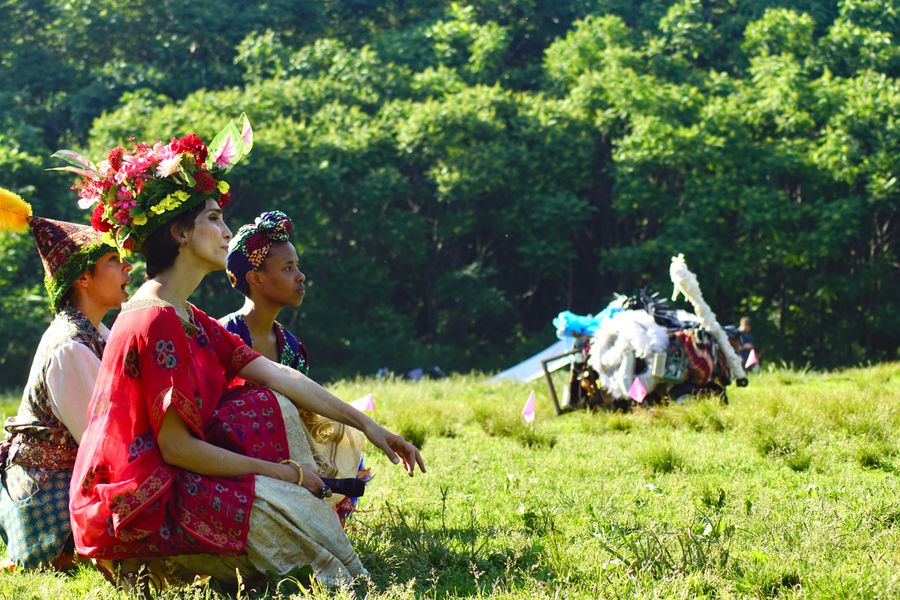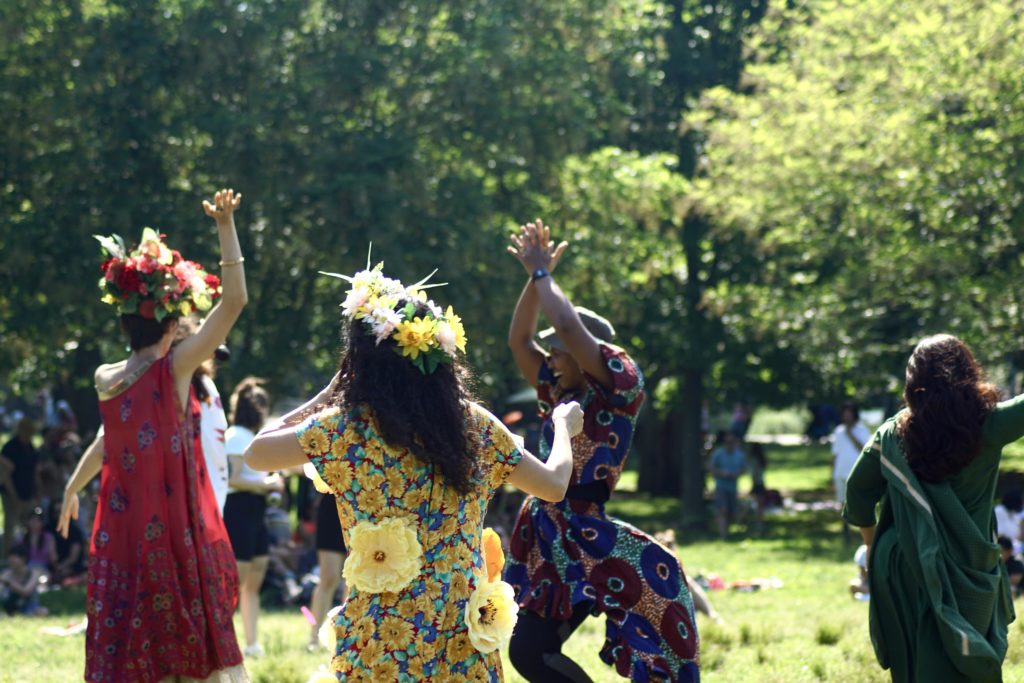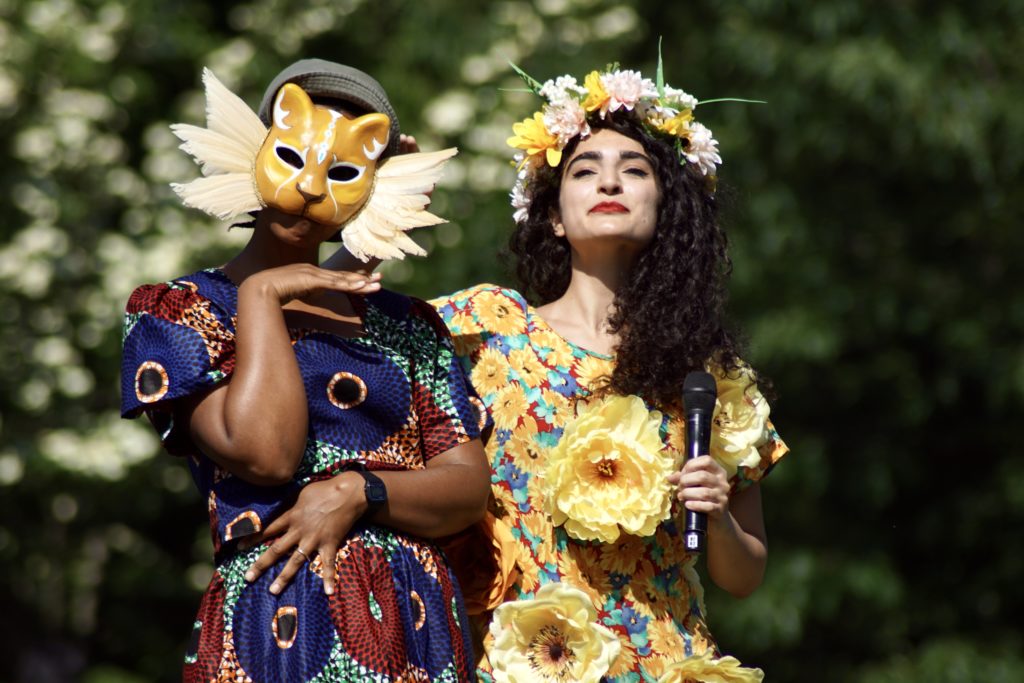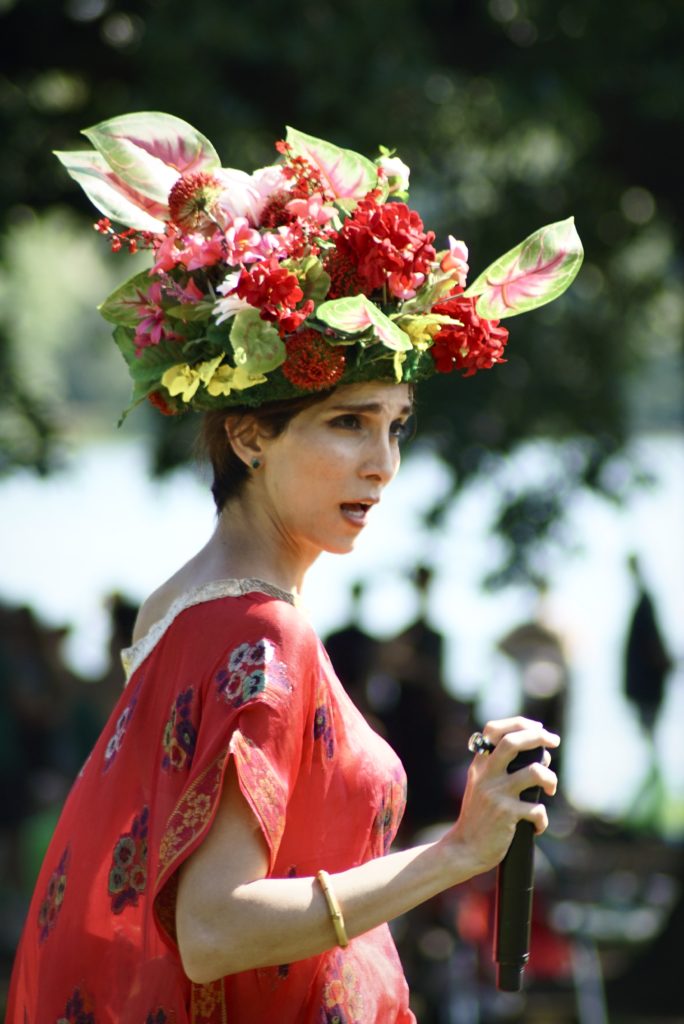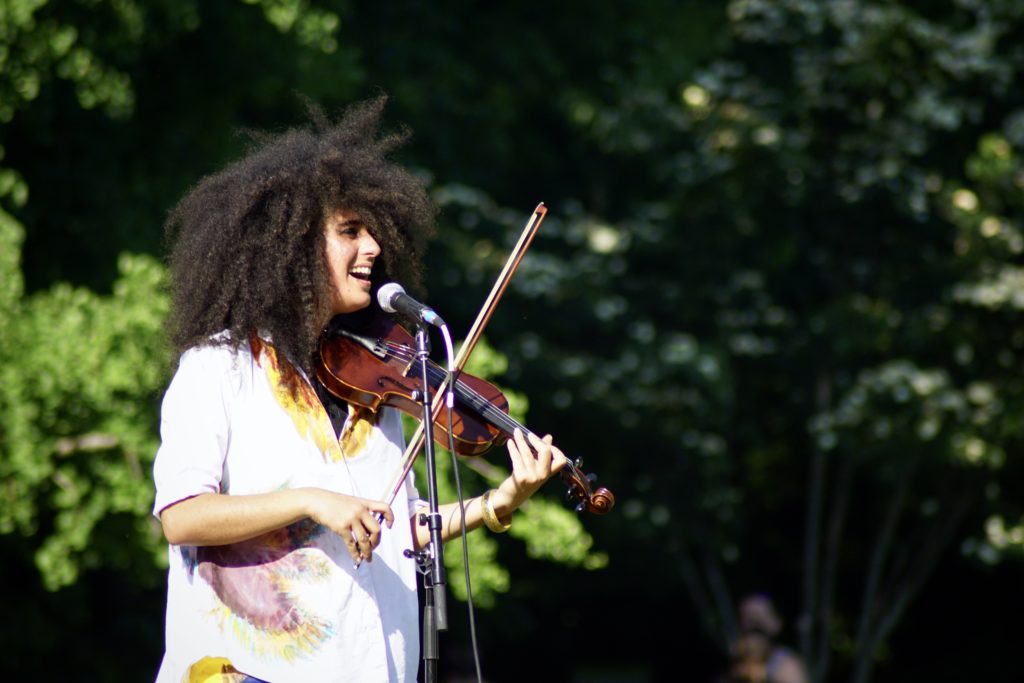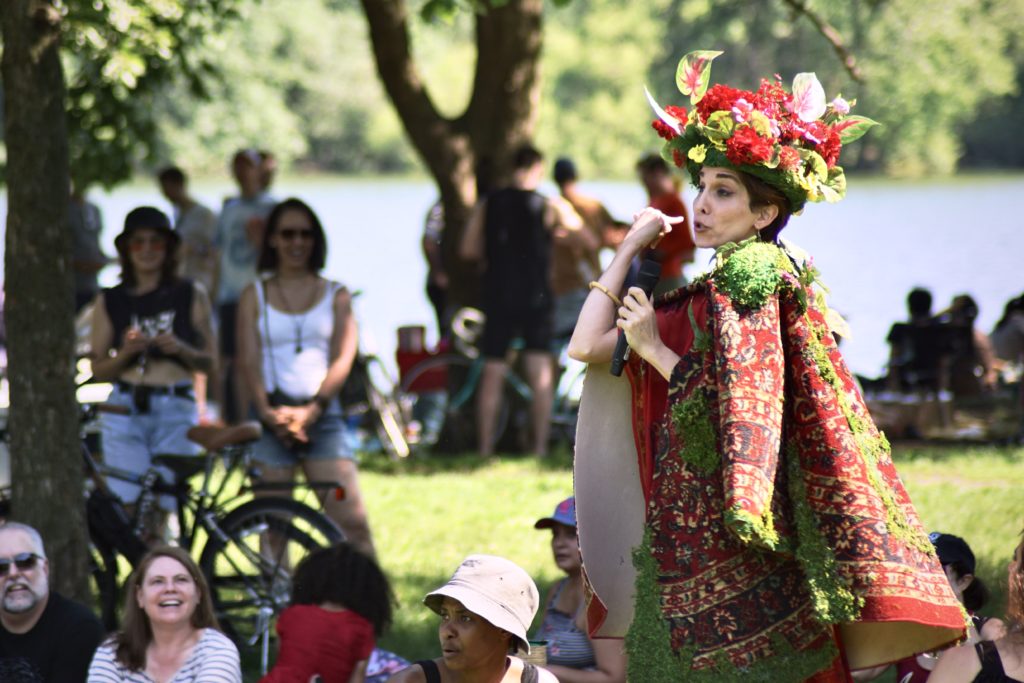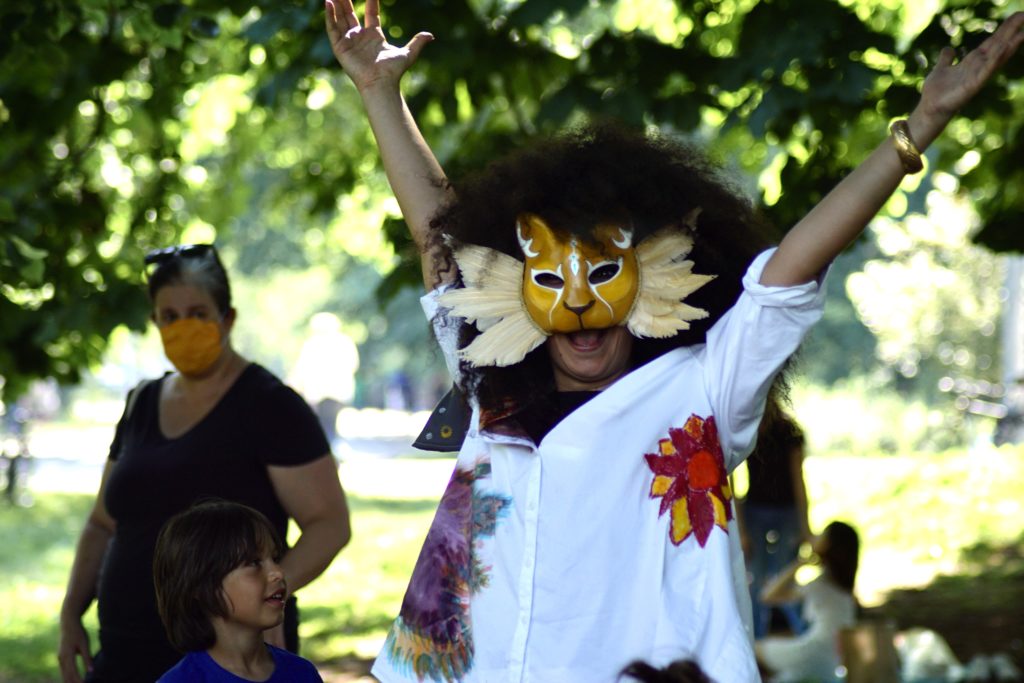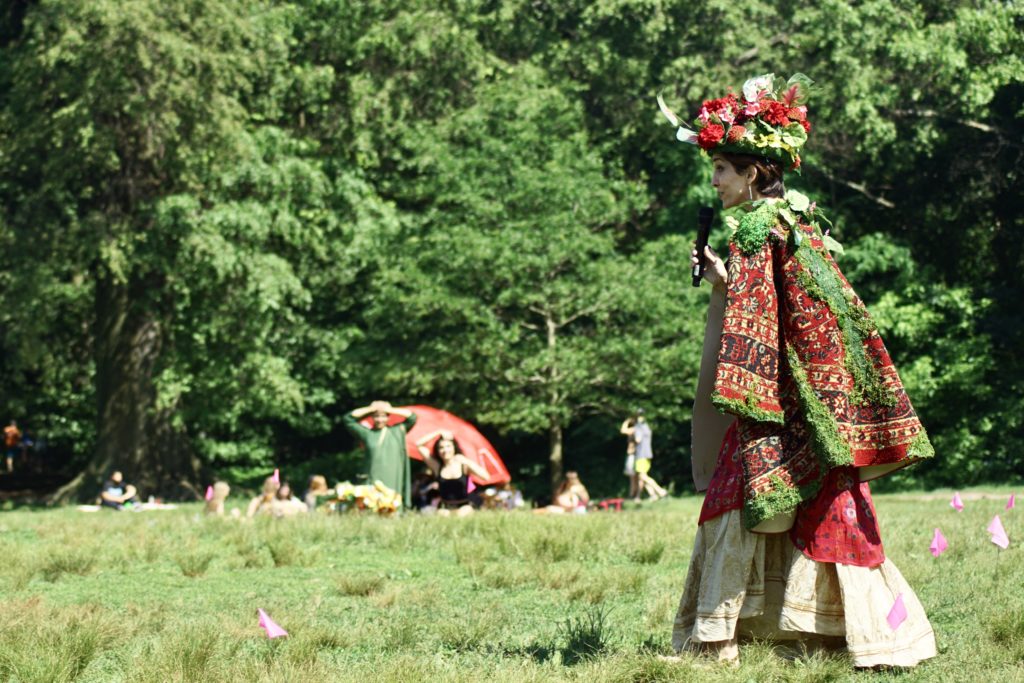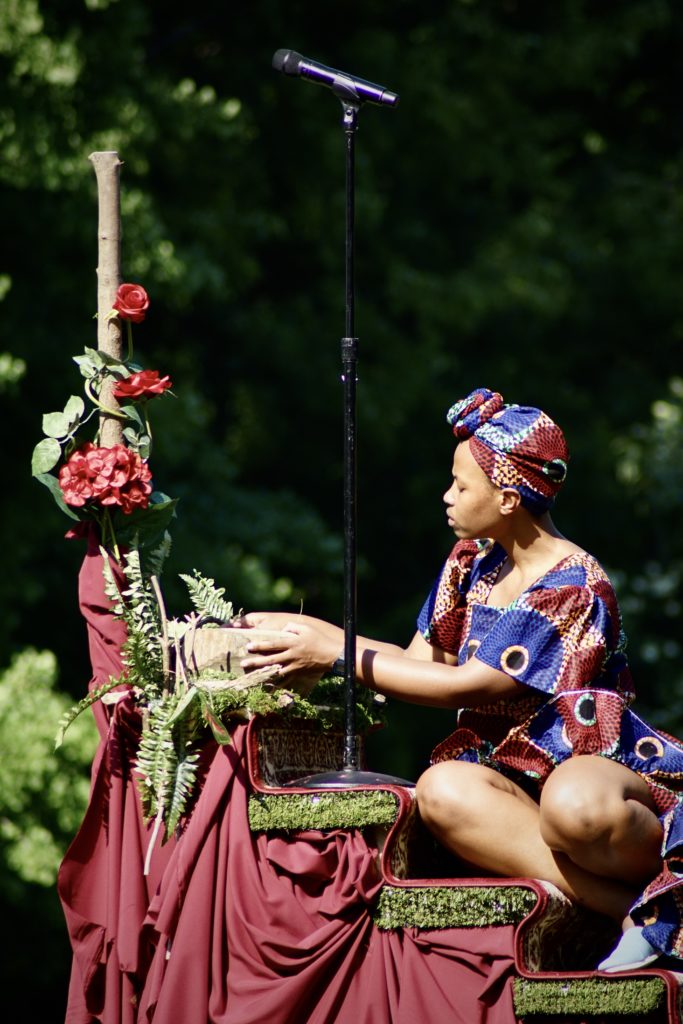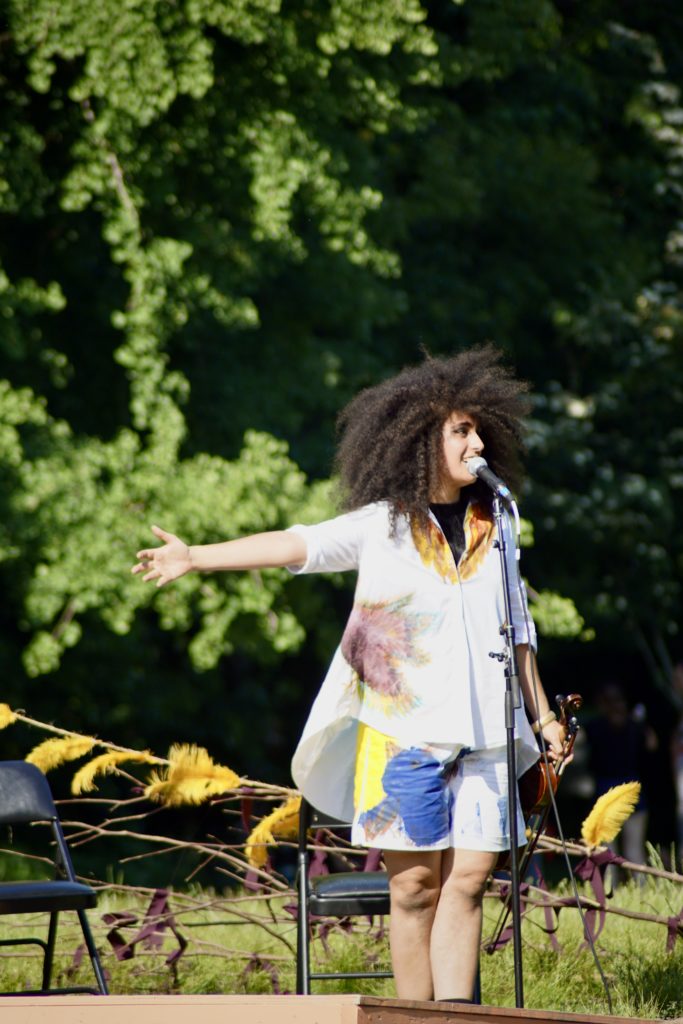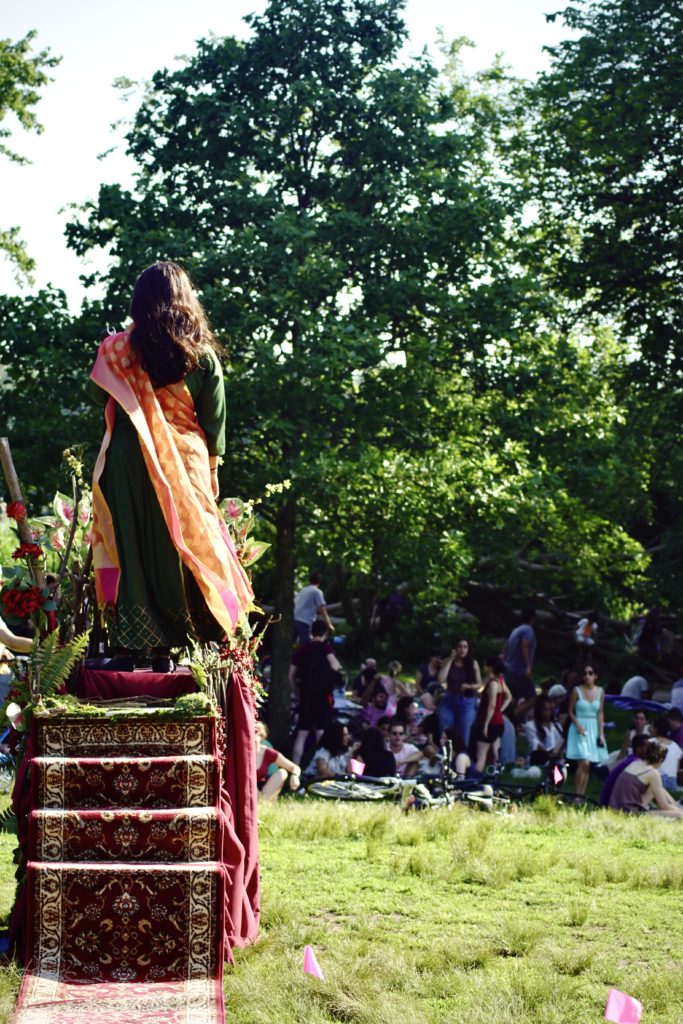NEW YORK CITY: Rattlestick Playwrights Theater will host the 2022 Global Forms Theater Festival June 1-12. Created mid-pandemic by Rattlestick’s managing director and current festival producer/curator, Yue Liu, as a way to secure employment for immigrant theatre artists, the festival, now in its third iteration, has grown to include over 100 artists from 34 countries.
“When the world shut down in March 2020, GFTF emerged to create a community of immigrant artists,” said playwright Inés Braun of Argentina in a statement. “It provided us a space from which we could collaborate to develop meaningful work that represents our lives as immigrant artists living in NYC. This will be the third year that GFTF is supporting and producing our work, and they have been a crucial factor in helping our work reach a wider audience. For artists who are facing visa renewals after over a year of theatre closures, this is invaluable work.”
With a mix of in-person and streamed performances alongside online classes, discussions, and talkbacks, there is plenty to experience at this year’s festival.
“GFTF is a place I truly feel welcome and celebrated,” said theatremaker Derya Celikkol of Turkey in a statement. “I am very grateful to the festival for providing such a supportive and free environment for immigrant artists to thrive. It has been very inspiring to work alongside these talented immigrant artists.”
“As an immigrant artist, or an immigrant full stop,” added James Clements of Scotland in a statement, “I think you are always interrogating what home is and what it looks like. Rattlestick, and this festival specifically, feel like a type of home for us all. You feel supported, nourished, and safe—and to me, that is home.”
There will be workshopped performances of All the Lonely Women by Inés Braun and Leigh Flayton; SKIN by Yuriko Shibata and Andrew Strano; The Aliens Make Thanksgiving Dinner by Derya Celikkol, James Clements, and Maamoun Tobbo; and a reading of Ran Xia’s Chava the Giant and the Oldest Bird.
“As artists, there’s often a gap between what we feel beholden to do in order to advance our careers, and our hearts’ desires,” said Ran Xia, who comes from China, in a statement. “This is doubly so for artists on a visa that puts restrictions on our choices. I’m glad to be granted access to a platform that allows us agency to create what reflects who we are, rather than what we are allowed to do, and to be a part of a community where we understand and embrace one another through a shared experience. I think that’s really why we all got into theatre in the first place.”
The festival will also feature industry learning sessions, discussions with theatre companies around the world, and a series of cross-cultural “Global Gabs” hosted by Jody Doo.
I spoke to festival organizer Yue Liu earlier this week about how the festival, initially organized to help immigrant artists, has taken on a life of its own.
ALEXANDRA PIERSON: Would you mind telling me a little bit about how the festival began and why?
YUE LIU: I’m personally an immigrant artist from China. It originally started in 2020, about three months after the start of COVID. In mid-May, I realized myself and a lot of my friends, who are also immigrant artists, were worried about the visa and the working situation. But luckily, I have a full-time job, so I could maintain a living. But a lot of immigrant artists are working on a project-by-project basis, and the theatre was shut down and all of the contracts were canceled.
As immigrant artists, there are a few challenges to stay here. 1) They can’t apply for Medicare, and during that COVID period of time, there was no insurance to protect them, they had to spend more money on more expensive insurance. 2) They can’t get unemployment benefits, so there is not any income revenue for them. 3) An O-1B visa means “extraordinary ability.” O-1B visa-holders are the immigrant artists we are working with. If they can’t provide employment proof within 60 days, there is a high chance they will get deported. Because, as the name says “extraordinary ability,” they have to keep proving they’re highly motivated, that they are generating a lot for the economy, for the country. But during that time, for the artists who are working in live theatre, that wasn’t not possible. A lot of people were living in fear, because it’s not that easy to have to go back home. The flight fare is really expensive and different countries had different policies and situations. It’s not that you could borrow some money and go home that easy.
So in May 2020, I did a town hall meeting under another initiative I have called New York Theatre Salon. I just decided to put marketing on social media and see who showed up. And then 30 artists showed up, and everyone was expressing the same concerns. I work as a producer, and I thought, what can I do to help all of these people? I came up with idea that we would do an immigrant theatre artists festival in a month, and we’d create the employment opportunities for ourselves.
In the beginning, I thought, I’d just do it under New York Theatre Salon. Since it’s my own initiative, I thought I’d just pay people out of my own pocket, and then I talked to the artistic director of Rattlestick (Daniella Topol), where I have a full-time job. And she was super supportive. She said, “We should do it at our company so we can pay more money to all the artists and maybe you can recruit more people.” Within four weeks, we created a whole festival and presented it in June of that year. We had more than 30 artists, all immigrants from 22 countries. There were shows, video projects, conversations, and we also worked with a lot of international theatre artists and producers who lived in their home countries, talking about the COVID situation and their producing experiences during COVID in their home countries.
Because of the festival, we were able to provide employment records for the immigrant artists to prove they had been working in New York City, even though we were not face-to-face, in-person performing. Because this is a job, we were able to pay people. At least for that month, when they were working, they had some income. And then we decided to do it annually. So that was three years ago, and now we’re doing the third year of the festival.
How has the festival grown or changed since the previous two iterations that you’ve done?
It has definitely grown. We’re trying to make the festival more mature. The first year, everything was done in a month, so it was a little bit rushed. The energy was great, but in the second year, I realized that no one was expecting COVID to last this long, so the second year was about including as many artists as we could in the festival. The first year, in 2020, we hired over 30 artists, and the second year, we hired over 130, almost 140 artists. As long as they had an idea, we’d just do our best to make it happen, so everyone could have something to showcase during COVID, as there were no other opportunities for them to present. A lot of them were young, emerging artists, who maybe just graduated from school as international students. They were really crying for opportunities to create something. The second year of the pandemic was getting a little bit better during the summer, so we were able to do an outdoor event in Prospect Park, called Glimpse Arts Festival. For a whole afternoon, we presented multiple Middle Eastern countries’ cultures.
This year, COVID is definitely getting better. A lot of immigrant artists, luckily, are able to find more jobs, so we’re very happy for them. And this year, we’re trying to focus more on quality and scale. In the past two years everything was online, so we saved a lot of physical production expenses. This year we wanted to have in-person performances, so we needed to dedicate more budget to production expenses, and make workshop-scaled productions in order to actually see their ideas onstage. This year, our theme is “Reunited,” it’s about how, after the two-year separation, you’re reunited with with your family, with who you are, with your true identity. So we started making it more more organized.
What is the process for artists to get involved with the festival?
Every year we do an open call. We always start with a town hall meeting to talk about the timeline of the festival, the theme of the festival, and what we are looking for. The people who are interested in participating can ask questions, and we record it, so they can show the recording to their immigrant friends or email us with questions.
Then we open up an open-call application form. They can submit whatever ideas they have that fit into that year’s festival. It’s a month-long application process. This year we added an advisory board and a selection committee. We have more established, successful immigrant artists who can stand on their own two feet and can help us select and interview the projects. This year we had seven members on the selection committee. We interviewed the projects that we were interested in, and then that’s how they made their decision.
Does the event create a sense of community? Have you gotten to know many new artists through the festival?
I made so many friends, as well as the participating artists made lots of friends. The goal for the festival is to collaborate with as many immigrant artists as possible. So let’s say one immigrant artist, for example, a playwright, has an idea to do a show. If that’s selected, then they have to do their best to find immigrant artists to be in the cast, the designers, the director. A lot of those people are artists the playwright has never seen or met before. We’re just trying to encourage them to collaborate. Through that process, people meet new friends and new collaborators. There are so many stories of artists who are still collaborating today. Like some artists participated last year, though they were not working on the same project, they saw each other, and now they’ve found each other and are working together this year. I met two of my great friends through the festival and we help each other with applications for our O-1 visa renewal.
Of course, there is good news and bad news. There was one artist last year who was not able to get the O-1 before the festival, and she was so disappointed. While everyone else was really excited preparing for their projects, she had to pack her luggage to go home. And she didn’t really have a lot of friends, because she was an international student, and not everyone understands that struggle. It’s stressful mentally and financially. Sometimes visas cost a lot of money. She called me and the other line producer and we were crying together, and I went to her house. I helped her pack her bag, and then I took her for dinner. And until today, she’s still communicating with me from her home country. She just feels she has a home here. She has a community here, and if she’s going through a hard time, she has people to talk to, with no judgment, just heart to heart, who understand what it feels like. It feels really heartwarming and rewarding to work with this community.
How can U.S. theatres do better for immigrant artists?
Of course, we can provide more opportunities for immigrant artists. One of the struggles for them that is not all American theatre companies, or any companies, understand what that visa is. So a lot of people get a job, and then the company realizes, “Oh, you’re not a green card holder, so that means you’re illegal.” And then they get fired for no reason, because that visa means they are legally allowed to work here. Just because of the ignorance, the lack of knowledge or curiosity for companies to actually learn what it is, a lot of artists lose opportunities.
Another thing is, because they’re immigrant artists they have trouble getting bigger projects, competing with American artists, or joining certain unions, because the unions want to protect local artists. Because of the status or the limited scale of the productions that they can get, the pay scales are usually not very fair. We should provide more opportunities, should be more open-minded about understanding visas and what they can offer, and also money-wise, we should have equal wages. Not just for immigrant artists—all theatre workers should have better wages.
Alexandra Pierson (she/her) is associate editor of American Theatre magazine. apierson@tcg.org

